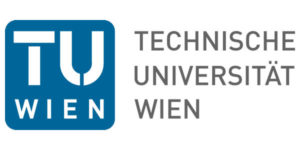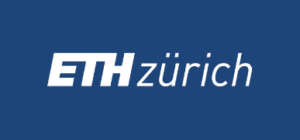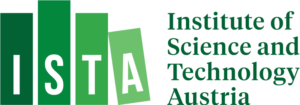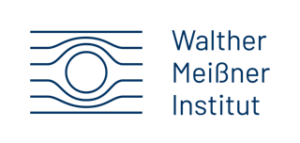The Technische Universität Wien (TU Wien), founded in 1815, is among the oldest institutes of technology worldwide and ranks among the top institutes of technology in Europe. With about 27.000 students and a staff of 4.500 it is the leading institution in Science and Technology in Austria. The mission of the TU Wien is to “develop scientific excellence” and to provide “technology for people”. One of its central research directions is “Quantum Physics and Quantum Technologies”.
TU Wien will coordinate the project and will primarily contribute to the theoretical analysis of state-transfer and error-correction protocols and the modelling of microwave-to-optics transducers. The research at TU Wien is lead by Assoc. Prof. Peter Rabl, who is an expert in the field of theoretical quantum optics with a strong interest in the implementation of quantum information processing schemes in AMO, solid-state and hybrid quantum systems.
ETH Zurich is one of the leading international universities for technology and the natural sciences. It is well known for its excellent education, groundbreaking fundamental research and for implementing its results directly into practice. Founded in 1855, to researchers, it today offers an inspiring working environment, to students, a comprehensive education. ETH Zurich regularly appears at the top of international rankings as one of the best universities in the world. Twenty-one Nobel Prize winners have studied, taught or conducted research at ETHZ, underlining the excellent reputation of the university.
The Quantum Device Lab at ETH Zurich performs research in the domains of quantum information processing, quantum optics and hybrid quantum systems with superconducting electronic circuits. The group’s role within the SuperQuLAN project is to setup the QuLAN hardware and perform the experimental demonstrations of quantum state transfer and entangling protocols between separated qubits.
The Institute of Fundamental Physics (IFF-CSIC) is the reference center in Atomic and Molecular Physics and Quantum Technologies in the Spanish Research Council. At IFF, the Quantum Information and Foundations Group aims at designing both hardware and algorithms for near-term intermediate scale quantum technologies, with a strong focus on superconducting circuits, atomic physics and nanophotonics. Within SuperQuLAN Juanjo García Ripoll contributes to the design of efficient protocols for transmitting information between superconducting quantum computers, via control techniques and careful simulation of realistic devices, among other software- and hardware-related tasks.
The Institute of Science and Technology (IST Austria) is a PhD-granting research institution located in Klosterneuburg, 18 km from the center of Vienna, Austria. Being committed to becoming a world-class research center offering a state-of-the-art international and interdisciplinary environment, IST Austria seeks to pave the way for cutting-edge research, new technologies, and new frontiers in graduate education. In 2019, 10 years after its inauguration, IST Austria was ranked 3rd in the normalized Nature index listing the most successful research institutions worldwide.
The laboratory for quantum integrated devices at IST explores the scientific foundations of optical interconnects for intermediate and long-distance networks of superconducting processors. The group’s role within the ‘SuperQuLAN’ project is to develop a high bandwidth electro-optic interface that is able to translate the quantum information stored in a superconducting quantum computer into quantum information encoded in near infrared light fields suitable for existing fiber optic networks. The research at IST is lead by Asst. Prof. Johannes Fink, who is an expert in quantum optics with superconducting circuits, silicon photonics, cavity optomechanics and electrooptics.
Zurich Instruments AG (ZI) spun off from ETH Zurich in 2008 by 3 co-founders with the vision to become market leader in lock-in amplifiers. Today this goal has been reached and the vision is to become the first commercial supplier for off-the-shelf quantum processor control systems. FPGA technology has always played a key role in ZI’s development: they allowed ZI to introduce a paradigm shift in instrumentation, where functionality moved from hardware to firmware. This enabled ZI to share the same hardware platform for functions like arbitrary waveform generators, digitizers, boxcar averagers, PLLs, PIDs and spectrum analysers.
In SuperQuLAN, ZI is responsible for the full stack of room-temperature electronics and control and measurement software. The provided system will integrate with the cryogenic electronics and quantum devices. ZI will design, manufacture and test hardware components and continuously deliver and test software components.
The company has a track record of successful commercial exploitations from EU-funded projects and will facilitate the commercialization of the project’s new technologies and components.
The Max-Planck Institute of Quantum Optics (MPQ) was founded in 1981 to carry out fundamental research on quantum and laser physics. With five departments and about 250 scientists, is one of the leading research centers in those areas. One of Its main focus is Quantum Science and Technology and, in particular, the development of the theory which is behind quantum processing and communication devices.
The contribution of MPQ to the project will include theoretical analysis of the different communication protocols, as well as to the development of quantum algorithms that can be realized by the experimental partners. The research will be led by Prof. Ignacio Cirac, who is an expert on quantum information theory and quantum optical devices, as well as on efficient techniques to describe complex quantum sytems.
aQa is a team of faculty, postdoctoral researchers, and students across the Leiden Institute of Physics (LION) the Leiden Institute for Advanced Computer Science (LIACS), the Leiden Institute for Chemistry (LIC), and the Leiden Mathematical Institute (MI). Ass. Prof. Jordi Tura collaborates with SuperQuLAN on the development of quantum algorithms for distributed quantum computers.








